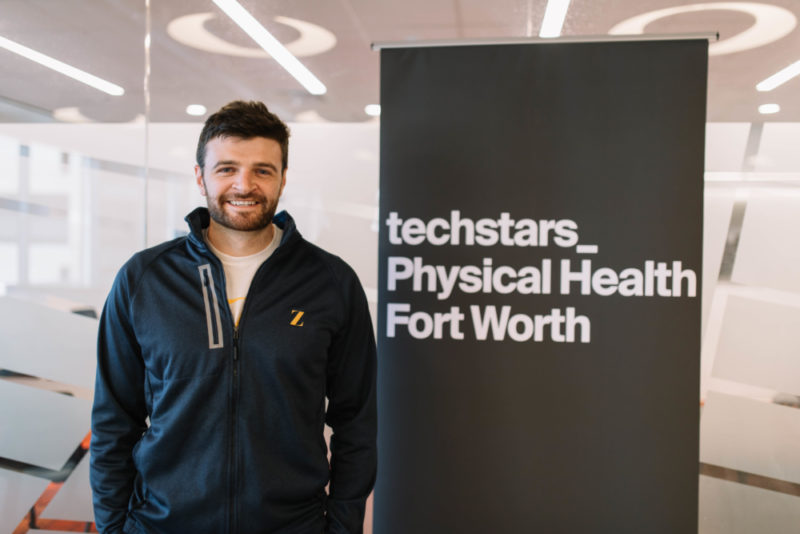When DC entrepreneur Brendan Sullivan was a senior at Yale University, he scored the impressive role of captain for the school’s varsity track team. But at the height of his athletic career, he noticed something about his teammates and other athletes: While a number were suffering from mental health issues, including eating disorders, many lacked access to necessary treatment resources.
“It was really hard to access any type of care,” Sullivan told Technical.ly. “Unless you basically were going to the counseling office and saying, ‘I’ve had suicidal tendencies,’ you were turned away.”
A few years later, he’s trying to do something about it for both student-athletes and athletic adults. He’s the founder of Zama Health, a behavioral and mental health platform for the athletic community. In partnership with gyms and college athletics departments, the platform offers clinical health services, workshops for coaches and trainers, peer-to-peer instruction and more to make mental health part of the overall wellness routine.
Exercise is a huge part of daily life for many people, and a study from Mintel indicates that approximately 78% said that mental and emotional well-being was their top reason for working out. With that in mind, Sullivan said that offering these services in gyms helps many take the next step toward overall healthcare. According to the American College of Sports Athletes, approximately 30% of women student-athletes and 25% of men suffer from anxiety, while only 10% of all collegiate sports participants with known mental health concerns seek care. Approximately 35% reported having disordered eating, as well.
Sullivan founded the company in July of 2021 alongside his mother, Jane Sullivan, who’s been a medical provider for 25 years. Zama has already been approved as a provider for Boston College, Georgetown University, George Washington University and the University of Massachusetts. It is also currently taking part in the Techstars physical health accelerator in Texas.
With the platform, Sullivan said he hopes that making it more actionable and incorporating performance-based goals can help people think more about holistic healthcare.
“For guys, especially, the gym is really the central point of self-care,” Sullivan said. “Although we’re gender-agnostic, by offering it [at] a location that they’re already comfortable with — and they may even have a relationship with a trainer — it allows us to start breaking that barrier.”
The company just signed a 30,000-member gym in Northern California, Sullivan said, as well as a Division 1 college in Texas. Gym members will have access to Zama through their gym app, which offers a twice-a-month meeting with a licensed therapist and an action plan for mental health. These users can also receive dietitian counseling and medication with the help of Zama. Personal training clients can additionally opt to make their trainer part of their care team.
College athletes, on the other hand, can log into the Zama app and sign up for a therapist. Meanwhile, coaches and staff can participate in training programs to better assist their athletes’ mental health needs. Sullivan said that they can also access support groups, which coaches could even make mandatory for every player so no one is singled out.
So far, the company has been entirely bootstrapped, although Sullivan hopes to open a pre-seed round this month. Going forward, he plans to add some more gyms and schools in 2023. He also intends to eventually upgrade the digital content and offer a peer-to-peer support network.
On the whole, he hopes that the startup can be a step in the right direction for athletes in need of a hand.
“The idea would be: If you come to your coach now and start asking them stuff, they’re better equipped to be like, ‘Actually, I think this is more something that Zama can better deal with,’ and redirect you to that,” Sullivan said.
Before you go...
Please consider supporting Technical.ly to keep our independent journalism strong. Unlike most business-focused media outlets, we don’t have a paywall. Instead, we count on your personal and organizational support.
Join our growing Slack community
Join 5,000 tech professionals and entrepreneurs in our community Slack today!

The person charged in the UnitedHealthcare CEO shooting had a ton of tech connections

From rejection to innovation: How I built a tool to beat AI hiring algorithms at their own game

Where are the country’s most vibrant tech and startup communities?


